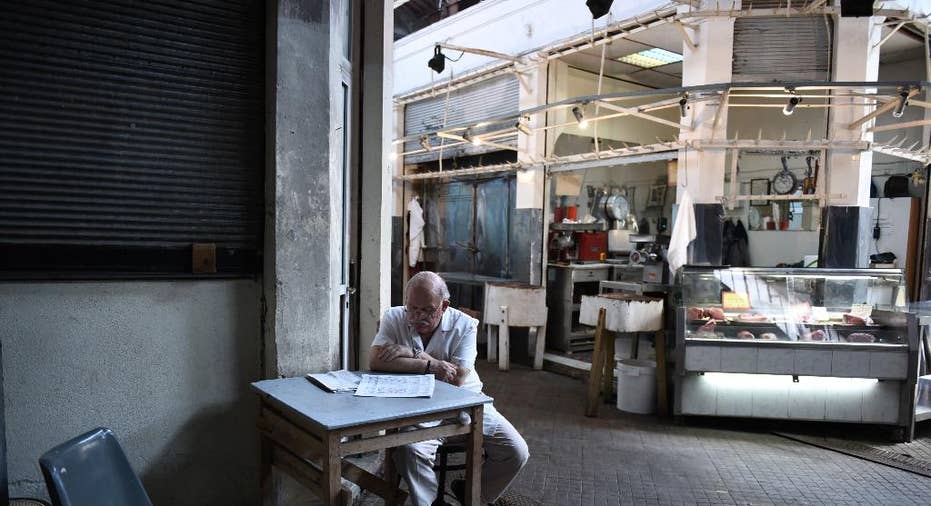A look at Greece's new financial rescue deal: what it entails and why it matters

ATHENS, Greece – Greece agreed on the broad terms of a new financial rescue package on Tuesday, with a few details remaining to be cleared up before it is formally approved.
The bailout would be the third in five years for the country, which is struggling to heal its economy and pay off its mountain of public debt.
Here is a look at what the deal involves and why it matters.
___
Q: What is the deal?
A: The bailout agreement entails a three-year package of loans worth about 85 billion euros ($93 billion). Greece needs to money to repay its debts and avoid a dramatic default that would see it forced out of the euro, the currency shared by 19 European Union countries. In return, it must implement a series of budget measures, including spending cuts and yet more tax increases, just as it had to do for its previous two bailouts.
___
Q: What are the broad terms?
A: The details have not all been officially released yet, but leaked drafts and government sources suggest the terms will heap more pain on the Greeks.
It envisages reforms that include:
-increases to corporate, personal income and property taxes, including a requirement for the following year's income tax to be pre-paid in full
-pension reforms and cuts, and phasing out most early retirement
-cuts to tax benefits for farmers
-cuts to medication prices
-reform of the welfare system
-cuts to military spending, including by reducing personnel numbers
-the sale of some state property
The government says the deal includes lower budget surplus targets than originally envisaged, thereby reducing the overall amount of budget cuts it will need to make.
___
Q: Why does Greece need it?
A: Despite receiving two bailouts totaling nearly 240 billion euros since 2010, Greece's economy and public finances are in a dire state. Public debt is about 320 billion euros, or 180 percent of economic output. That is making investors wary of lending to Greece on bond markets, so the country has no option but to seek rescue loans from its fellow European countries and the IMF.
Critics argue the budget cuts demanded by creditors for the previous two rescues exacerbated the problems of the economy, which lost a quarter of its value. The current prime minister, Alexis Tsipras, came to power in January on pledges to repeal those cuts. However, his attempts to challenge creditors collapsed after months of acrimony. The government shut down the country's banks and put limits on money transfers and withdrawals to staunch a bank run. The turmoil has led the economy back into a recession.
___
Q: Why is the deal important for Greece and the rest of the world?
A: Without financial support, Greece would go bankrupt and likely fall out of the euro. That would be hugely painful economically for the country and could destabilize the rest of the eurozone.
Though many economists say the eurozone could withstand the short-term market turmoil caused by Greece's exit from the euro, many warn it would suffer in the longer term. A Greek euro exit could, for example, lead investors to believe that another country might drop out if it gets into financial trouble as well. A destabilized eurozone would weaken the world economy as it is a key trading partner for the U.S. and Asia and at the heart of the global financial system.
___
Q: What happens once Greece's new deal is finalized?
A: The text of the agreement must be approved by Greece's parliament. Although Tsipras has suffered major dissent within his radical left Syriza party, pro-European opposition parties are almost certain to vote in favor, meaning the agreement will go through. A vote is due late Thursday.
The deal will also need to be approved by other eurozone nations. This will initially come from the eurozone finance ministers, who are expected to discuss the issue Friday. Some nations will also have to ratify the deal in their parliaments, including Germany, which was the largest single contributor to Greece's previous two bailouts and has been Greece's harshest critic.



















